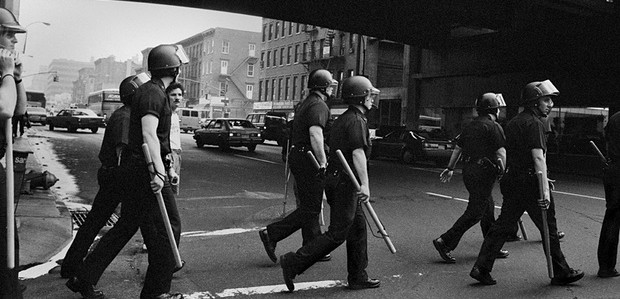
Gangster whispering…
What does it take to direct Precinct Seven Five? Most of all, it takes the willingness to be a co-conspirator.

Someone asked my wife once what I did for a living – she said I was a gangster whisperer. They both laughed. Though the truth lies not far south. My subjects sell drugs. Me, I traffic in story.
Documentaries aren’t often thought to be a director’s medium. Particularly when they’re interview-driven films. But when a criminal unspools the secrets he’s hoarded all his life, what has happened off-screen is as important as what goes on in front of the camera. And it’s equal parts craft and magic trick.
So, what does it take to direct a true crime documentary like Precinct Seven Five? Dumb luck, raw ambition, blind bravado, good bullshit and an iron clad word. But, most of all, it takes the willingness to be a co-conspirator.
Part I – The Art of the Hunt
Most criminals don’t want to be found. And they know how to vanish in the wind. The same can be true of police. So when it comes to crooked cops, you need both providence and alchemy.
Two tools proved useful. One is the database software bounty hunters use to track people down. (I won’t name the companies or the cost but a little searching will reveal both). With some basic biographical info, you can create an astonishing dossier on damn near anyone: a matrix of criminal records, known associates, former addresses and contact info for family members, landlords, and parole officers, etc.
The other is Fed Ex. Because whether you’re Jeff Bridges or a homeless gangster, when someone sends you a package overnight with your name handwritten on it, you tear it open.
What’s in the letter? That’s part of the magic trick.
Part II – Social Engineering
Interviews are simple. Create a beautiful frame that’s both evocative of the subject and expansive enough to allow them to be who they are. Then roll audio, roll camera, and slate sticks.
But what happens before this moment is the true art and joy of documentary filmmaking.
What you’re soliciting is a confession. What you promise is amnesty. In the distance between the two lies a covenant. There may be a body in the trunk. Or twenty grand in the glove-box. But if I promise you something is off limits, then you can take that to the bank or to the grave.
It might take ten shots of vodka to convince you, or a blood oath, or a fistfight. But by the time we’re rolling, an agreement has been reached:
I will bear witness. And you must tell the truth.
Part III – Don’t Ask Questions
When shooting begins, I’ve unearthed everything I can about the interview subject. I’ve mined court records, knocked back beers with cops, parried challenges from skeptical prosecutors. I’ve hi-lighted the newspapers and magazine pieces. Had countless off-the-record conversations. And often as not, I’ve only found the tip of the spear.
So when the cameraman says speed, I don’t call action and I don’t attack. I wait. I watch. I listen. Time stops. Judgment is suspended. Budget falls by the wayside. You talk. I listen. Truth bubbles forth one word at a time. I’m here to bear witness and etch it in the record.
Afterwards, months, sometimes years, go by as we wrestle with the material in the edit – teasing out the perfect pairing of image and word, the fluid hand-off mid-sentence from one interview subject to another, the exact right song, the perfect piece of sound design, etc. And by the time the film is finished, that day we shot has long since faded to black.
With Precinct Seven Five, it wasn’t until we screened the film publicly that I knew we had done the material justice. The entire cast was present – cops, crooks, drug dealers, informants, wives, mayors, etc. And as the lights dimmed and the projector flickered to life I sank into my chair with a pit in my stomach. I thought: Everyone here is going to hate me. Everyone will feel betrayed. By telling the story from every perspective without passing judgment, I have infuriated them all.
After the screening, I waited outside wishing I still smoked. They came up to me one by one and looked me in the eye and said, “that’s exactly what it felt like to live and work in the Seven Five.”
Last week, my phone rang late at night. The man on the other end identified himself as Frank Serpico. Yes, the Serpico: “Tiller, I saw the film,” he said. “It’s a masterpiece. The world needs to know about Michael Dowd. And how nothing’s changed at all, man.”
I’ve waited all my life for that call. It made me want to go shoot another movie.







COMMENTS